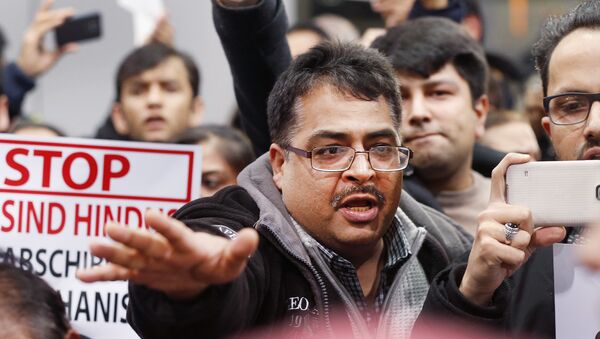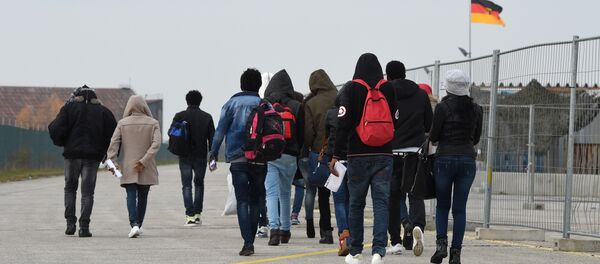"Clearly AfD would support everything that speeds up [failed asylum seekers] expulsion. [But] CDU and SPD only do this because most of it seems popular… Maybe it works out for them, at least a bit. Many voters tend to forget easily. But they are easily upset, too, if they see no immediate progress," Ronald Glaser said.
AfD is looking to get around around 8 percent of the vote in the upcoming German elections alongside The Left party, according to recent polls. The Christian Democrats are eyeing to get just under 40 percent, while the SPD is likely to win over 25 percent of the electorate. Over 20 percent of voters remain undecided.
“The problem is lack of will, not lack of power,” Glaser explained.
The new rules, which in particular are aimed at speeding up expulsions by allowing authorities to access data stored on electronic devices of undocumented migrants to verify their identities, could be a step toward invading German citizens’ privacy and thus the establishment of a surveillance state, according to Glaser.
"It seems very popular to check the mobile phones of those people [asylum seekers], since they ambush their real identity… But I would nevertheless be careful with that demand. Today our government makes it legal to go through foreigners' mobile phones — tomorrow they do it with ours. We don't want a surveillance state," Glaser noted.
According to the new rules, asylum seekers caught lying about their identity or background may be held at reception centers as long as it needs to process their applications.
The bill will also impose stricter rules on violent migrants and those deemed a security risk. They will be required to wear ankle monitors, while detention time pending their deportation will be extended to a maximum of ten days.
Germany took in 890,000 immigrants during the crisis year of 2015. The Interior Ministry said arrivals dropped to 280,000 in 2016, but it is still struggling to clear a backlog of applications, while addressing security issues related to migrants' stay in the country.



